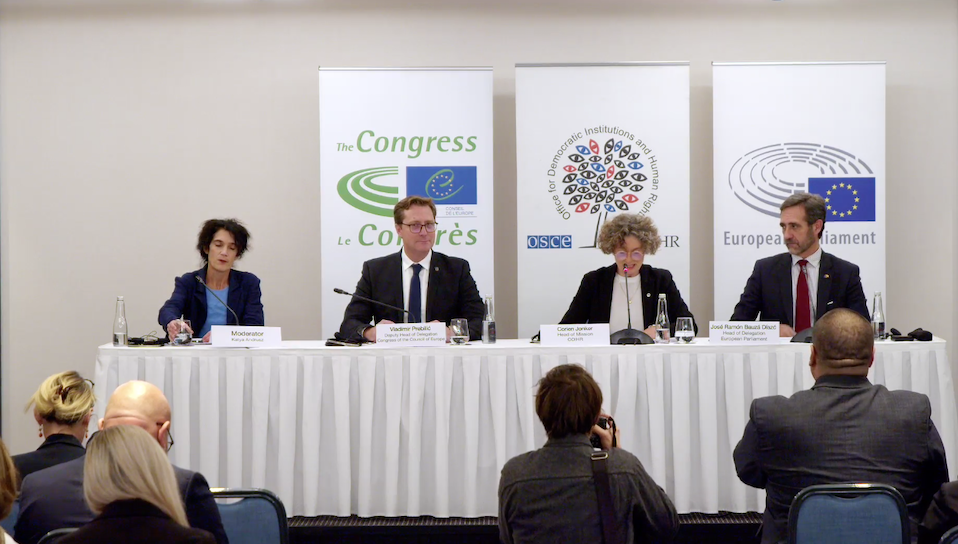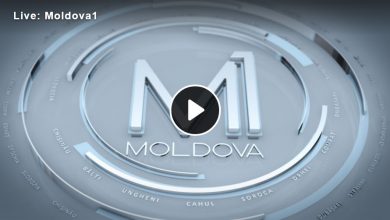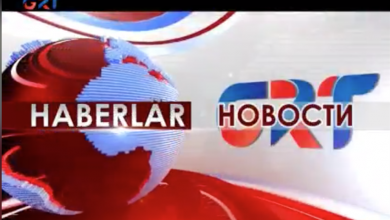OSCE on Suspension of TV Channel Licenses: “It Does Not Seem to Be a Measure of Proportionate Restriction of Freedom of Expression”

The last week’s suspension of the licenses of six more TV channels in the Republic of Moldova is not a proportional restriction of freedom of expression, especially considering that the BC did not previously apply any sanctions for disinformation against these channels, according to the preliminary conclusions of the International Election Observation Mission (IEOM) presented on November 5.
In the Statement of Preliminary Findings and Conclusions, the Mission affirms that the suspension of the TV channels’ licenses and blocking a number of web sources took place “despite the TV stations not being sanctioned for disinformation previously by the Audiovisual Council (AVC).” “However, under international human rights law, disinformation or false information do not constitute proportionate restrictions of freedom of speech unless they amount to advocacy of hatred that constitutes incitement to hostility, violence and discrimination. In addition, the restrictions should to be appropriate and proportionate to achieve the legitimate aim, using the least restrictive means. Furthermore, the AVC had the authority to take additional legal measures against these stations and it had previously repeatedly fined some of these stations for inaccurate reporting but not for broadcasting disinformation”, the document mentions.
“The decision to suspend the licenses of the six TV channels during the state of emergency approved by the Commission for Emergency Situations was determined by the concerns about deviations and the manipulative rhetoric aimed at protecting the national information space. The Intelligence and Security Service accused the Russian Federation of having its impact on the local elections in Moldova and being actively involved in disinformation campaigns via these TV channels, therefore, acting as a threat to the democratic process,” Maja Milikic, IEOM media analyst, commented at the press conference while presenting the preliminary statement.
“Moldova’s media environment reflects a complex interaction between political influences, economic challenges, and evolving regulations. Polarization between pro-Russian and pro-Western factions in combination with oligarchic control is an obstacle to the media’s capacity to act as an independent and critical voice. The advertising market, too limited for the large number of TV channels, faces financial difficulties,” she considers.
The decision to suspend the licenses of such channels as Orizont TV, ITV, Prime TV, Publika TV, Canal 2, and Canal 3 was made by the Commission for Emergency Situations following the recommendation by the Intelligence and Security Service (ISS), for the reasons that they “promoted foreign interests.” This initiative caused multiple reactions.
On the same day, many media NGOs and civil society organizations published a statement “expressing their concern caused by the perpetuated suspension of the TV channels’ licenses in the absence of extensive explanations for the factual and legal circumstances justifying these restrictive steps.” Besides, according to the People’s Advocate Ceslav Panico, “the mechanisms for countering threats to the security of the national information space can only be implemented under the provision of compliance with the international standards, without any prejudice to the freedom of the press, or with minimal interference with it.” Some channels concerned by the authorities’ decision regarded it as an “unprecedented attack on freedom of the media in the Republic of Moldova.”




